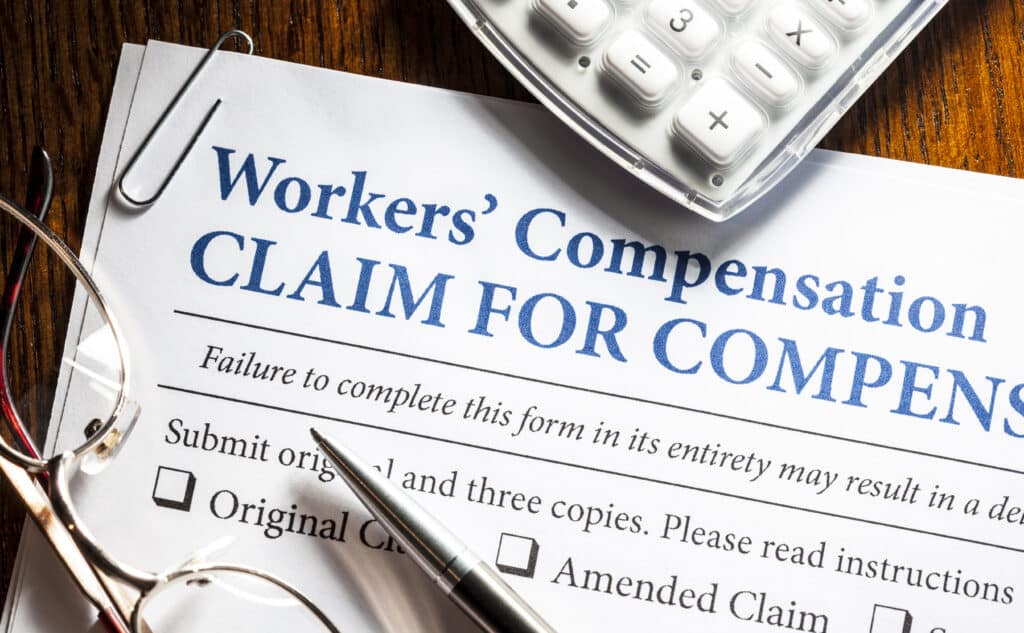
When Washington state workers are hurt or become ill due to their jobs, they often wonder, “Should I file an industrial injury claim or an industrial disease claim?” Understanding the difference between these two types of workers’ compensation claims is essential, not only for getting the right benefits but also for avoiding delays or denials.
At Emery | Reddy, PC our experienced workers’ compensation lawyers help injured and ill workers navigate this complex process every day. Here’s what you need to know to determine which type of claim best fits your situation.
What Is an Industrial Injury?
An industrial injury is a sudden, identifiable event that causes harm while you’re on the job. These injuries are typically easy to diagnose and are often visible or acute. Examples include but are not limited to:
- Slip-and-fall accidents
- Machinery-related injuries
- Burns from chemical spills
- Back injury from heavy lifting
- Cuts or punctures from tools
Because these injuries occur at a specific moment in time, they are easier to document. Medical professionals can usually link the injury directly to the workplace incident, which makes the claims process more straightforward.
What Is an Industrial Disease?
An industrial disease, on the other hand, develops gradually due to long-term exposure to harmful conditions or repetitive tasks at work. These illnesses or injuries may take months, or even years, to manifest. Examples include:
- Lung disease from inhaling toxic fumes
- Carpal tunnel syndrome from repetitive hand movements
- Hearing loss from prolonged exposure to loud machinery
- Skin conditions from chemical exposure
Industrial diseases are more difficult to diagnose because symptoms often appear long after the exposure began. Workers must prove that their illness is directly related to their job duties or environment, which can be challenging without legal support.
Key Differences Between the Two Claims
Understanding the distinctions between industrial injury and industrial disease claims can help you file correctly and avoid costly mistakes.
1. Timing of the Injury or Illness
Industrial Injury: Happens suddenly and is tied to a specific event.
Industrial Disease: Develops over time due to repeated exposure or activity.
2. Proof Requirements
Industrial Injury: Requires documentation of the incident and medical diagnosis.
Industrial Disease: Requires evidence linking the illness to workplace conditions, often through expert testimony or medical records.
3. Statute of Limitations
Industrial Injury: Report of Accident (ROA) must be received within one year of the injury.
Industrial Disease: ROA must be received within two years of the date the doctor notified you in writing that your condition was work-related.
4. Claim Complexity
Industrial Injury: Often easier to prove and process.
Industrial Disease: May require more documentation and legal support.
Repetitive Trauma: A Grey Area
Some injuries, like repetitive trauma, blur the line between industrial injury and industrial disease. For example, a rotator cuff injury from lifting boxes daily may not stem from a single incident but from months of repetitive motion. In Washington state, these are usually classified as industrial disease claims, even though they result from physical strain.
Why Filing the Right Claim Matters
Filing the wrong type of claim may lead to delays, denials, or reduced benefits. For instance, if you file an industrial injury claim for a condition that developed over time, L&I may reject it due to lack of a specific incident. Similarly, misclassifying a sudden injury as an industrial disease could complicate your case unnecessarily.
An experienced workers’ compensation lawyer who understands Washington’s L&I system can help guide you through the process.
Post-Mortem Claims: What Families Should Know
If a worker tragically passes away due to a workplace injury or illness, their spouse or children may be eligible for L&I workers’ compensation death benefits, also known as L&I survivor pensions. Benefits may include the following:
- A one-time immediate payment to the deceased worker’s spouse or registered domestic partner
- Monthly survivor pensions
- Burial reimbursements
How Emery | Reddy Can Help
At Emery | Reddy, we’ve helped thousands of Washington workers file successful claims for both industrial injuries and industrial diseases. Our legal team understands the nuances of each type of claim and can:
- Help you gather the right medical documentation
- Determine the correct classification for your work-related injury or illness
- File your claim within the statute of limitations
- File a protest or appeal if your claim is denied
Whether you’re dealing with a sudden injury or a long-developing illness, our workers’ compensation lawyers are here to protect your rights and fight for the benefits to which you are entitled.
Know Your Claim Type and Protect Your Future
Choosing the right type of workers’ compensation claim is the foundation for your case and filing correctly can mean the difference between receiving full benefits or facing unnecessary delays or denials.
If you’re unsure whether your condition qualifies as an industrial injury or an industrial disease, contact an experienced workers’ compensation lawyer who can help you understand your options and take the right steps toward recovery.




